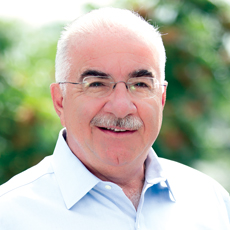
Professional and trade organizations advocating for pharmacy and pharmacists rarely agree on much, but the movement to persuade Congress to grant Medicare provider status to pharmacists is just such an issue.
Medicare currently allows physicians, physician assistants, nurse practitioners, chiropractors, clinical social workers, physical and occupational therapists, speech language pathologists, and clinical psychologists to bill directly for Medicare services. Pharmacists are excluded — despite the fact that pharmacists who graduate today are required to earn a Doctor of Pharmacy (PharmD) degree, a postgraduate degree that typically requires six years of college and graduate school.
I have been thinking about what it will mean to consultant pharmacists and to long-term care for pharmacists to finally be recognized as providers under the Medicare Part B program. Under the terms of legislation currently introduced in Congress, pharmacists would be able to provide certain clinical services allowed under their state licenses. Clinical services provided by a pharmacist within state-specific scope of practice would be paid at 85% of a physician’s rate for the same services.
The first thing you may ask is how many of these underserved areas are there? A lot! The Health Resources Services Administration keeps a list of official health-professional shortage areas and defines them as areas “having a shortage of primary medical care, dental or mental health providers. They may be urban or rural areas, population groups or medical or other public facilities.” As of June 2014, the HRSA identified approximately 6,100 designated Primary Care HPSAs, 4,900 Dental HPSAs, and 4,000 Mental Health HPSAs in the United States.
The second thing you may ask is what types of services would generally qualify under the proposed standard. There are three qualifiers here: 1) The service must be currently covered by Medicare Part B, 2) If a physician performed the service he or she would be paid a professional fee by Medicare, 3) The service must be allowed within the state-authorized scope of practice as determined by each state board of pharmacy.
So what’s the holdup? This legislation has been pending since the previous congressional session, and the Congressional Budget Office has not yet given it a cost estimate (score). Given the scoring models currently in vogue, we can probably expect the CBO to put a fairly hefty price tag on this legislation if it were passed—perhaps as much as several billion dollars over 5 to 10 years.
So, is the cause of pharmacist provider status doomed? Not at all! But I believe we need to focus on the opportunities we have to demonstrate how medication therapy management services provided by pharmacists can more than cover the CBO-estimated cost. The good news is there are many independent studies that have demonstrated that pharmacist-delivered medication management reduces rehospitalizations and improves patient outcomes. Medication misadventures have been a leading cause of unnecessary rehospitalization during all kinds of transitions of care: from hospital to home to nursing facility to assisted living facility to independent living. Reduction of the current rehospitalization rate is a key factor to the success of the Center for Medicare & Medicaid Services value-based reimbursement demonstrations such as accountable care organizations and bundled-payment models.
Pharmacists are an untapped resource. On July 13, 2015, CMS issued a long-awaited proposed rule (CMS: LTC Mega Rule) that would revise the requirements that long-term care facilities must meet to participate in the Medicare and Medicaid programs to improve patient care. In this rule, CMS proposes to add a new requirement that nursing facilities reconcile all predischarge medications, both prescription and nonprescription, with the resident’s postdischarge medications. This medication reconciliation would be included as part of the discharge summary to the primary care physician. Not only do consultant pharmacists have specialized knowledge of geriatric pharmacy enabling them to accomplish this, but they also have a trove of data at their fingertips or, more likely, on their laptops. Ironically, without passage of the provider status bill, pharmacists are not eligible to be paid to use their expertise to provide these services.
The opportunities for pharmacists to use their skills are not just in the major public health care programs; they also exist in the private sector. Taking the pharmacist skills, along with the data they possess, to private-sector insurers— and demonstrating the value the profession brings to the table—is an opportunity that will certainly find willing collaborators.
So, while we will certainly continue to fight for Medicare provider status, we will also encourage our members to take their success stories to their elected representatives in Washington, asking their support for provider-status legislation.



